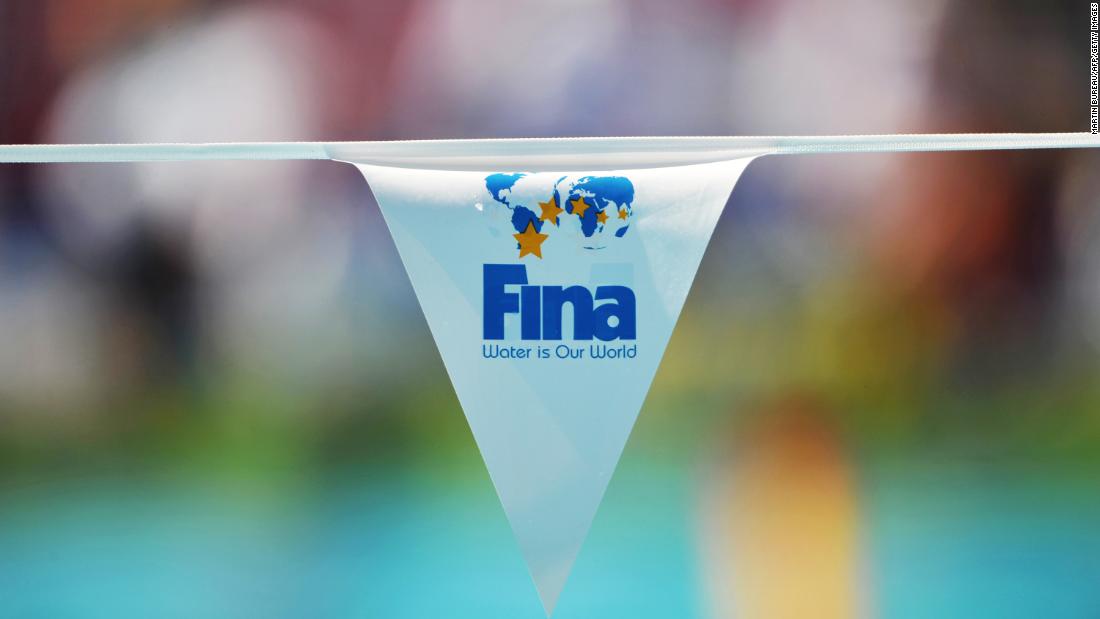(Reuters)World swimming's governing body FINA on Sunday voted for new eligibility rules that restrict the participation of transgender athletes in elite women's competitions.
The policy is the strictest from any Olympic sports body and effectively bars any transgender women who have gone through male puberty from competing in women's events.
FINA also agreed to work towards establishing an "open" category for some events that would ensure all swimmers would have the chance to compete.
The decision means that swimmers such as American Lia Thomas will not be able to compete in world championships or the Olympics.
University of Pennsylvania swimmer Thomas became the first transgender NCAA champion in Division I history after winning the women's 500-yard freestyle earlier this year.
The success of Thomas, who competed on Pennsylvania's men's team for three years before transitioning and setting multiple program records with the women's team, provoked a wide-ranging debate about the issues of inclusivity and competitive fairness in swimming and sport in general.
Here is the background to FINA's decision and why this ruling is important to the world of sport.
Why did FINA take this decision?
There have been growing calls from former swimmers and coaches for the governing body to restrict the participation of transgender women in the sport, which intensified after Thomas's success at the US college championships.
Those who campaigned for change argued that people who have gone through male puberty have physical advantages and therefore women's competition needed to be protected.
Supporters of trans participation argue that not enough research has been done into the question of whether trans women have any advantage. Groups such as Athlete Ally have stated that FINA's new policy is "discriminatory, harmful, unscientific."
Is this a ban on all transgender swimmers in competition?
The ruling only applies to elite competitions run by FINA, such as their world championships, and competitions where FINA sets the eligibility criteria -- primarily the Olympic Games. It also impacts on who is eligible to set a world record in women's swimming.
It does not necessarily apply to national or regional competitions or lower-level meets. National federations could apply their own criteria for their competitions.
The ruling also only impacts on transgender athletes in women's competitions. Female-to-male transgender athletes (transgender men) will continue to be eligible to compete in men's races without any restriction.
The creation of an 'open category,' details of which have yet to be worked out, would also create a space for transgender women to compete.
What evidence did FINA produce before making this decision?
The new FINA policy came out of a working group that had three components -- an Athlete Group, a science and medicine group and a legal and human rights group, which FINA says studied "the best available statistical, scientific, and medical evidence concerning sex differences in sports performance, and any associated male sex-based advantage."
FINA said the Science Group was comprised of "independent experts in the fields of physiology, endocrinology, and human performance, including specialists in sex differences in human performance and in transgender medicine."
Delegates to the FINA congress in Budapest were told by members of the group that the evidence showed that going through male puberty gave trans women swimmers a physical advantage that remained even after hormone treatment as part of their transition.
What is the position of other sports?
In November, the International Olympic Committee issued a 'framework' on the issue, leaving eligibility decisions up to individual sports bodies, but adding that "until evidence determines otherwise, athletes should not be deemed to have an unfair or disproportionate competitive advantage due to their sex variations, physical appearance and/or transgender status."
Last year, New Zealand weightlifter Laurel Hubbard became the first transgender athlete to compete in the Olympics in a different gender category than assigned at birth.
READ: A transgender weightlifter's Olympic dream has sparked an existential debate about what it means to be female
Many sports bodies have allowed transgender women to compete in women's events if they have lowered their testosterone levels to a certain point.
Last week, the International Cycling Union (UCI) tightened its rules by increasing the transition period for lower testosterone from 12 months to two years and halving the maximum level to 2.5 nmol/L.
The FINA ruling could increase pressure for similar moves inside other sports.
Can the decision be challenged?
The normal route for challenging the rulings of international sports bodies is through the Court of Arbitration for Sport, based in Lausanne, Switzerland. Other sports will be watching any legal moves with keen interest.



